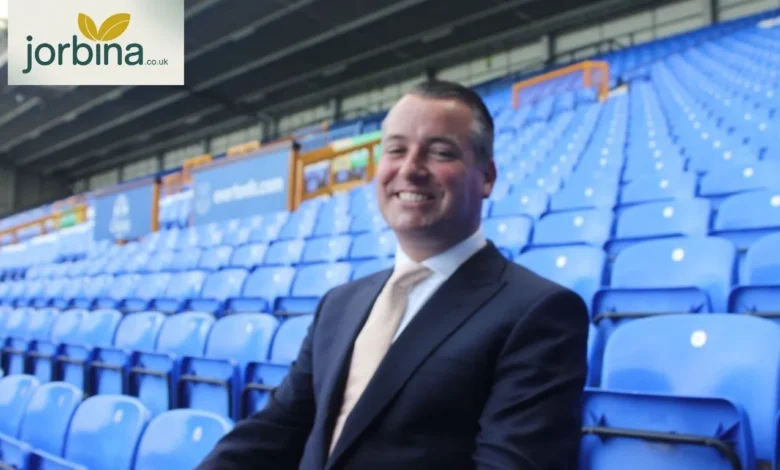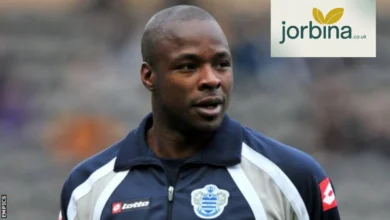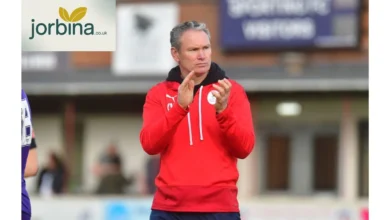Alan McTavish’s Playbook for Progress

What makes some leaders thrive in the pressure cooker of modern football? How does one person balance business, sport, and community with equal skill? These are the questions that come to mind when you look at Alan McTavish, a name that’s quietly but powerfully shaped English football’s commercial and cultural landscape. His story isn’t about overnight success or headline-grabbing fame. It’s about consistency, adaptability, and a deep understanding of what makes clubs like Everton FC matter beyond the scoreboard.
The Man Behind the Momentum
Alan McTavish built his reputation by blending strategic thinking with a genuine respect for football’s roots. For nearly a decade, he served in key leadership roles at Everton FC, where he became one of the most influential voices in the club’s commercial and community strategies. His tenure included time as Commercial Director and later as CEO of Everton Women, a position that placed him at the centre of one of football’s fastest-growing arenas, the women’s game. During that period, he also served as a trustee of Everton in the Community, an organisation focused on local engagement and social responsibility. Those years weren’t just about sponsorships or balance sheets. They were about connecting business growth to purpose. That’s the kind of thinking that has kept his name relevant long after official announcements faded from the headlines.
A Career Built on Layers
Alan McTavish’s journey didn’t start with Everton. His earlier professional life was shaped by commercial roles that demanded sharp instincts and the ability to navigate change. Each step added a new layer to his skill set. When he arrived at Everton, he wasn’t just another executive; he was someone who understood how culture and commerce intertwine. Football, after all, is more than matches and medals. Its identity, belonging, and story. McTavish understood that better than most.
Why His Time at Everton Matters
During McTavish’s tenure, Everton faced a landscape that was changing fast. Digital engagement, sponsorship dynamics, and the explosion of the women’s game all demanded fresh approaches. He helped guide Everton through this evolution, ensuring the club remained true to its roots while exploring new opportunities. His move to lead Everton Women was especially notable. The women’s game was entering a new era, with growing audiences, media coverage, and investment. McTavish saw it not as a side project but as a frontier of potential. His work there helped position the team as part of a broader vision for the club’s future. When he stepped down from his role in 2025, it wasn’t an ending but a natural progression in a career marked by evolution.
What Makes His Leadership Different
So what sets Alan McTavish apart? It comes down to mindset. His approach isn’t just about metrics; it’s about meaning. While some leaders chase short-term gains, he focuses on structure and purpose. His playbook includes three key elements: adaptability, integrity, and foresight. He adapts because the football world never sits still. He operates with integrity because the community notices when leaders cut corners. And he looks ahead, always asking how today’s choices will shape tomorrow’s possibilities.
Football’s Changing Face
The football business today is a world of shifting expectations. Clubs aren’t just teams; they’re brands, content platforms, and global networks. A match like Arsenal vs Chelsea isn’t just a sporting event; it’s a marketing phenomenon. Every broadcast, sponsorship, and fan interaction builds value. Leaders like Alan McTavish understand this shift. They know success now requires a mix of emotional intelligence and commercial awareness. Everton operates in that same competitive field. To stand out, it needs voices who can translate the club’s heritage into modern relevance. That’s what McTavish did.
Lessons from Alan McTavish’s Playbook

1. Diversify Your Perspective
McTavish’s path shows that sticking to one lane limits growth. By taking on commercial, community, and sporting leadership roles, he expanded his range. That kind of cross-domain understanding allows leaders to connect dots others miss.
2. Balance Identity and Innovation
Everton’s brand is deeply tied to Liverpool’s working-class roots. McTavish respected that identity while still pushing for progress. His time on Everton in the Community’s board reinforced this idea: growth works best when it builds on who you already are.
3. See Opportunity in New Frontiers
His decision to lead Everton Women came before the explosion of media attention around the women’s game. That foresight, stepping into a developing field early, marks him as someone who doesn’t wait for trends; he helps set them.
How His Lessons Apply Beyond Sport
Even if you’ve never stepped into a stadium, there’s value in McTavish’s approach. The principles that guide his decisions apply anywhere leadership and change collide. In business, the equivalent might be launching a new division or entering a new market. You need vision, timing, and courage. McTavish’s story reminds us that progress comes from calculated shifts, not reckless leaps. And that balance between tradition and disruption is what keeps organisations healthy.
The Broader Context
Football isn’t just competition; it’s culture. And like culture, it evolves. The rivalry between Bjorn Borg and McEnroe captured tennis fans for decades because it was about more than sport—it was about personality, contrast, and narrative. (You can read The Truth Behind Bjorn Borg and McEnroe’s Fierce Rivalry for an example of how storylines shape legacy.) Alan McTavish operates with that same awareness of narrative in football. He knows that fans connect to more than scores; they connect to meaning.
The Next Chapter
After stepping away from his Everton role, speculation grew about what’s next for Alan McTavish. Given his track record, it’s fair to assume his next position will involve leadership at the intersection of business and sport. His experience makes him an asset wherever brand, audience, and purpose align. It’s worth noting that he’s also listed in public corporate records, such as Laurence Alan MCTAVISH-GREAVES’s personal appointments, which reflect his broader professional involvement beyond club football. Those details add another layer to a profile already rich with experience.
Why His Story Resonates
At its core, McTavish’s story is about bridging worlds: sport and business, heritage and innovation, and local and global. It’s also about authenticity. Many executives speak the language of passion, but few live it. McTavish’s long-standing work with Everton and its community programmes proves his commitment runs deeper than press releases. For him, progress isn’t a buzzword; it’s a responsibility.
What We Can Learn
If there’s one takeaway from Alan McTavish’s journey, it’s that real growth is steady, not sensational. He didn’t build his reputation through flash but through trust and results. That’s what makes his playbook worth studying.
Here’s what matters:
- Progress requires patience and perspective.
- Leadership means serving, not just directing.
- Legacy is built through consistency, not headlines.
- These ideas might sound simple, but in the chaos of modern sports management, they’re often forgotten. McTavish proves that sticking to them still works.
The Broader Lesson from Sport
Sports reflect life’s patterns, competition, teamwork, and adaptation. A fixture like Arsenal vs Chelsea isn’t only a clash of clubs; it’s a clash of ideas about how to win. Similarly, leaders in any industry face rival visions. Those who succeed aren’t just tactically smart; they’re emotionally tuned in. McTavish shows what that looks like in practice: steady progress guided by purpose.
Closing Thoughts
Although the details of Alan McTavish’s legacy are still being written, the general framework is obvious. Few can match the experience he gained during his years at Everton. His measured, human, and forward-thinking leadership style provides a model for how football executives can stay relevant in a sport that is changing quickly. More significantly, his story demonstrates what true progress entails: a sequence of astute, significant steps rather than a single leap. Therefore, keep in mind that there are steady hands like Alan McTavish behind the scenes, forming the story from within, the next time you watch a high-stakes game or read about a club’s business decision.



